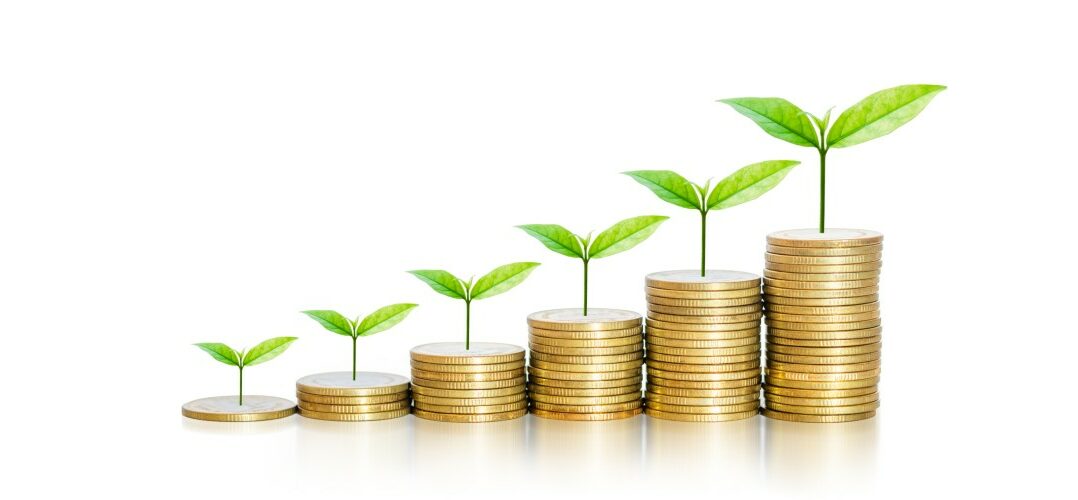The last few weeks and months have served as a crash course both for businesses and individuals in how to be agile, resilient and innovative – whether managing teams working from home or baking sourdough bread.
Bill Gates, among others, warned of the threat of a global pandemic back in 2015, when he told a TED Talks audience that microbes were more dangerous than missiles. The warning largely fell on deaf ears.
Roll on five years, and the present pandemic offers a taste of what is to come if we continue to ignore scientists’ warnings of climate change – a “far greater scourge on humanity”, writes Michael Moritz, partner at Sequoia Capital, in the Financial Times.
Covid-19 and climate change are linked; by their effects on businesses and people, and because pandemics such as Covid-19 could occur more frequently if nature is not safeguarded, a group of biodiversity experts warns.
Against this background, an investment strategy underpinned by environmental, social and governance (ESG) factors is taking on a new relevance: as a way to mitigate risk, build a resilient portfolio and to improve longer term returns.
UBS draws parallels between the effects of Covid-19 and climate change
A white paper by UBS Asset Management in the Asia Pacific region, Going Green: Real estate and sustainability in APAC, draws parallels between climate change and Covid-19 from the perspective of real estate investment management.
Both open the door to “widespread damage to public health and disruption to economic systems”, while the solutions to both are “guided by scientific evidence”, says the UBS paper.
“Talk around climate change has often centred around long-term projections” with the “effect of priming many to think about global warming as something in the faraway future”, the paper says. Instead, “acting to prevent and protect against global warming will become increasingly imperative in real estate investment management.”

« The concepts of a ‘green premium’ and a ‘brown discount’ are increasingly ingrained in the underwriting and investment process for real estate investments » – Shaowei Toh, UBS Asset Management
Environmental issues on the horizon are pushing investment managers to draw up a thorough exit strategy when making an acquisition (a core-plus investment is held for an average three to five years), as “each successive buyer is likely to place greater importance on the environmental performance of a building,” says Shaowei Toh, Head of Research & Strategy, Asia Pacific, Real Estate and Private Markets, UBS Asset Management.
The figures start to show that ESG investment makes financial sense
The big test for ESG investment holdings was always going to be how they would fare during a downturn. Were ESG factors just a nice to have in good times, when you could afford them, or could their returns ensure their relevance as an investment strategy?
“Sustainable funds showed resilience during the COVID-19 market sell-off” – Morningstar
In the first three months of 2020, for example, ESG funds (across all sectors) domiciled in Europe pulled in €30bn compared with an overall outflow of €148bn for European funds, reported Morningstar, the global financial services firm, as “sustainable funds showed resilience during the COVID-19 market sell-off”.
Morningstar expects the “upward trajectory” of flows into climate-aware funds will be supported in coming years by “significant regulatory developments”, including the EU Action Plan on Sustainable Finance, which is designed to channel private finance in support of the European Green Deal.
In the real estate sector, David Hutchings, Head of Investment Strategy in Europe for Cushman & Wakefield, points out that many investors are still looking for guidance as to “what they should do and what their rewards will be”. Some are still not walking the talk and others are not doing much at all, he says.
The rise of the ‘social’ and the ‘governance’ in ESG
While step changes are still needed with regards to the ‘Environmental’ of ESG, ‘Social’ and ‘Governance’ factors are increasingly coming to the fore.
Bank of America, in its 10 reasons to care about ESG investing, reports that happy employees equal successful companies. Employers rated as the ‘best places to work’ outperformed those rated ‘worst places to work’ by 41 per cent over a nearly six-year period.
In London, market leader LGIM Real Assets – with £35.1bn assets under management as of December 2019 – is rolling out a ‘social value’ measurement with the aim of measuring the social impact of 20% of its portfolio by the end of 2020.
“Through the way they manage their companies during the crisis, management and boards will determine whether their social licences are extended and thus define their potential for future success” – Aberdeen Standard Investments
Corporate governance comes into its own during times of crisis, writes Aberdeen Standard Investments: “The decisions being taken by those responsible for the governance of companies must now also demonstrably consider a broader set of stakeholders, including the environment and wider society.
Covid-19 has not only highlighted rising income disparities within countries around the world, but also, quoting the US as an example, the private sector has received its largest government aid package in history, writes Lynn Forester de Rothschild, founder of the Coalition for Inclusive Capitalism, in the Financial Times.
“The public understands that business is an indispensable partner to government and essential to economic prosperity. But, unlike after the last crisis, this partnership must demand a long-term quid pro quo from business and investors,” she writes.
Only 9 per cent of FTSE All World companies link executive pay to ESG
Most companies may have an ESG strategy, but research by Sustainalytics, which was bought by Morningstar last month, points to only 9% of FTSE All World companies (8% for real estate) linking executive pay to ESG criteria, and most of this is to address occupational health & safety risks.
“As investor concern about climate change continues to mount and these factors face increasing exposure to transition risks, we expect that more firms in this space will implement long-term carbon related pay links,” says Sustainalytics.
The term ESG was pioneered in 2004 and laid out in the report Who Cares Wins, commissioned by the UN, together with the International Finance Corporation and the Swiss government. More than 15 years later, it appears that these pioneers are finally being listened to, even though there is still a way to go, and carbon-neutral targets still need to be met.
As Canadian photographer Edward Burtynsky said: “There may one day soon be a vaccine for this virus [Covid-19], but there is no vaccine for climate change.”
Top Image: Getty Images – Thithawat_s



